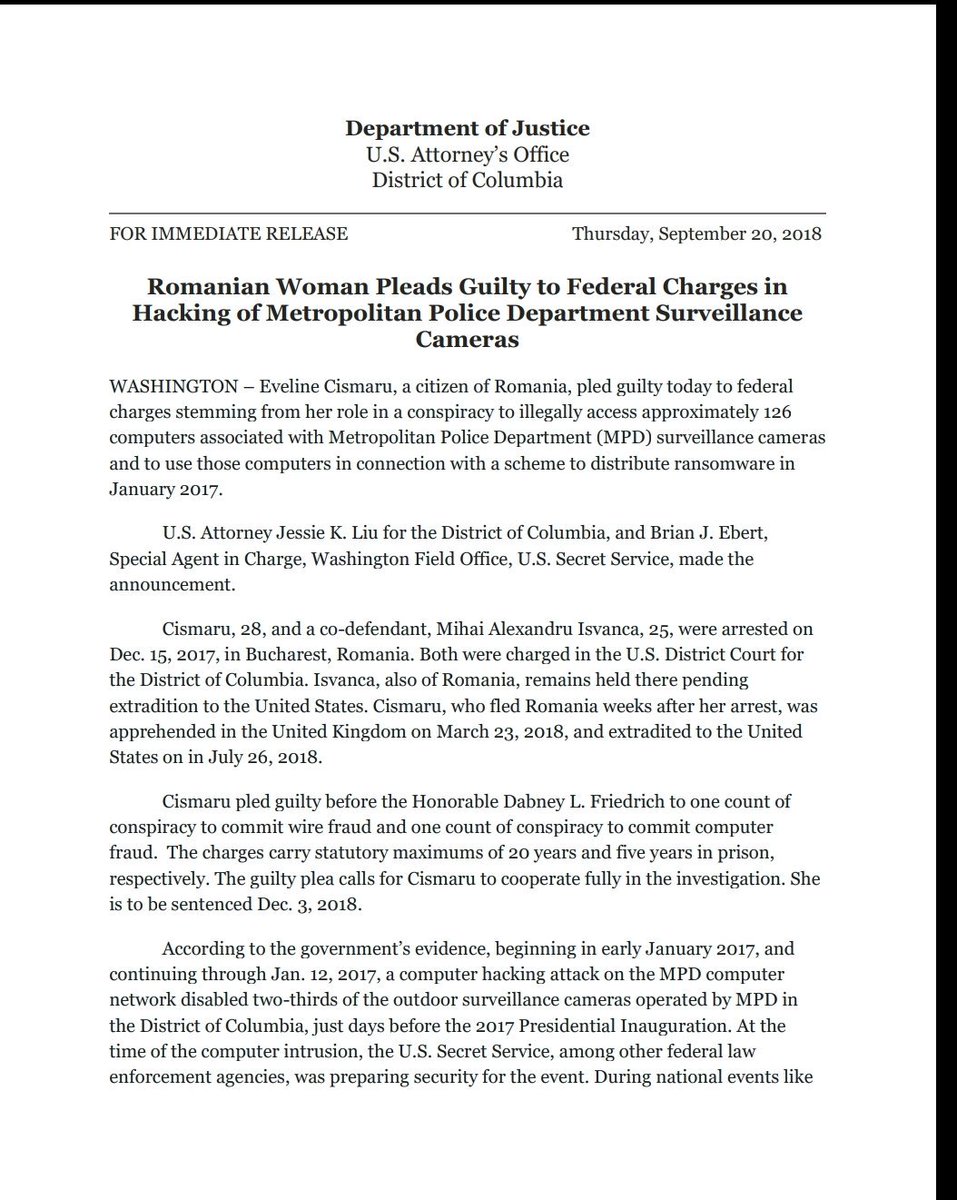Romanian Woman Pleads Guilty to Federal Charges in Hacking of Metropolitan Police Dept Surveillance Cameras
@drawandstrike @ThomasWictor @HNIJohnMiller @catesduane @rising_serpent @_ImperatorRex_ @Debradelai @GodlessNZ @almostjingo
justice.gov/usao-dc/pr/rom…
U.S. Attorney Jessie K. Liu for the District of Columbia, and Brian J. Ebert, Special Agent in Charge, Washington Field Office, U.S. Secret Service, made the announcement.
The investigation revealed no evidence that any person’s physical security was threatened or harmed due to the disruption of the MPD surveillance cameras.








